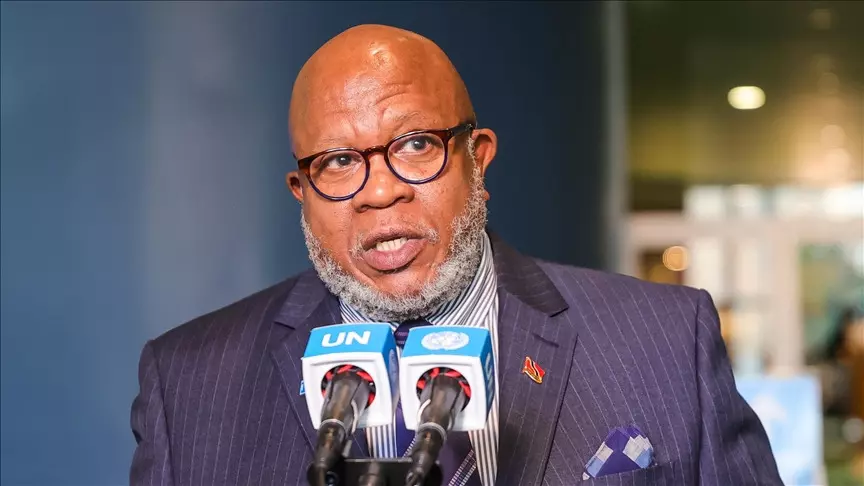UNGA President cites India's efforts to lift millions out of poverty through digitalisation
Francis was responding to questions from the UN diplomats, officials and policy experts gathered at the event after his lecture when he added that rural farmers in India, who never had a relationship with the banking system, are now able to transact all their businesses on their smartphones, including paying their bills and receiving payment for orders
image for illustrative purpose

United Nations: Citing the example of India, President of the 78th session of the UN General Assembly Dennis Francis told a global audience in Rome that the country has lifted millions of people out of poverty through digitalisation. Referring to the need to provide a basis to support rapid development, such as through digitalisation, Francis cited and lauded India's example and said: “Take for example the case of India…. India has been able to lift 800 million people out of poverty over the last five or six years simply by the use of smartphones.” Francis was delivering a lecture at the Food and Agriculture Organisation (FAO) of the United Nations headquartered in Rome on “Accelerating progress towards Zero Hunger for the current and future generations.”
Francis was responding to questions from the UN diplomats, officials and policy experts gathered at the event after his lecture when he added that rural farmers in India, who never had a relationship with the banking system, are now able to transact all their businesses on their smartphones, including paying their bills and receiving payment for orders. Underlining that 800 million people in India were lifted out of poverty, Francis added that there's a high level of internet penetration in India and almost everyone has a cell phone. Francis noted that this is not the case in many parts of the Global South. “Equity demands that there has to be some effort, some initiative to address this inequality as an initial step in negotiating the Global Framework for Digitalisation.”
In 2009, only 17 per cent of adults in India had bank accounts, 15 per cent used digital payments, one in 25 had a unique ID document and about 37 per cent had mobile phones. These numbers have increased exponentially and today, tele-density has reached up to 93 per cent, over a billion people have a digital ID document, and more than 80 per cent have bank accounts. As of 2022, over 600 crore digital payment transactions were completed per month. The series of financial inclusion measures launched by the Indian government include Aadhaar, a biometric database that provides a unique identity to each Indian citizen; no-frills savings bank accounts called Jan Dhan; the direct transfer of social benefit payments into these Jan Dhan accounts; and a digital payment infrastructure called BHIM based on the Unified Payments Interface (UPI).
In response to another question, Francis stressed the importance of having the international financial architecture revisited “because let's face it, those systems were created 80 years ago when the world was radically different. The dynamics of development were quite different.” The UN has said that following the political declaration adopted at the occasion of the United Nations' 75th anniversary in September 2020, the Secretary-General in September 2021 released his report ‘Our Common Agenda.' The Common Agenda proposes a Global Digital Compact to be agreed at the high-level Summit of the Future in September 2024.


